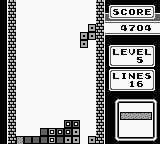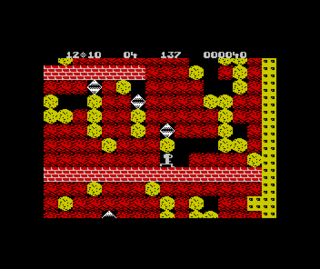
These single-person "teams" are running into a bit of trouble, though, when it comes to games that are an awful lot like real, commercial products. And, as you might expect, the license holders of the games being cloned (or, you might say being "used as inspiration") are doing what they can to clamp down.
The most famous example is a game called Tris, a Tetris clone developed by Noah Witherspoon. The free app was, you know, Tetris. So it didn't take too long before The Tetris Company came knocking. As a guy and not a company, it wasn't realistic for Witherspoon to put up a fight, so he pulled the game. I'm no lawyer, but I watch enough Law & Order to think that it was the name of the game--which would certainly cause "confusion in the marketplace" when compared to the official, $9.99 version of the game--that caused the problem. There are a billion free Tetris clones out there that TetrisCorp hasn't cracked down on... yet.

Now, Touch Arcade has the story on Atari getting into the legal pressure game, with three Breakout clones, BreakClassic, BreakTouch 3D, and Super Pong 2, in the company's crosshairs.
This stuff pulls me in both directions. On one hand, a lot of these guys are just, you know, guys. Single individuals making games for their phone. That's pretty cool. On top of that, all of these games have been cloned to death on other platforms without much of a stink from the copyright holders. So it seems like the companies are playing the heavy, just pressuring out the little guys because they're willing to bet that they won't get much resistance.
On the other hand, as soon as you start selling your clone of a classic game, you're effectively making money off of something that isn't yours. Just because it's old doesn't automatically make it fair game. In some cases, some simple name changes would probably do the trick, if only to make it harder to people to confuse it for an official product. But again, I'm not Sam Waterston, so don't take this as legal advice.
So what do you think? Are the companies evil for going after individuals? Or are these developers total thieves that shouldn't be making games that aren't theirs in the first place?
14 Comments